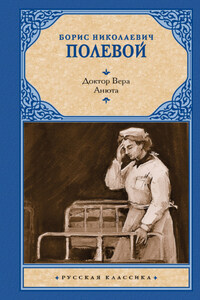The first shots came as they were flying northeast toward Danang. Over the terrific noise of the engine and rotors, she could hear a pinging sound, something like coins being lobbed against the metal where she was sitting. It wasn’t particularly loud, and didn’t sound remarkable or worrying. For many minutes she sat stiffly in the nylon seat of the helicopter, the wind rifling across her trouser legs, sending her field jacket back so that she could feel a button pushing against her neck, being aware of many things, but not the pinging sound, the bullets directed at her, at all of them, as they spun above a canopy of jungle.
She had much to distract her from the pinging: the roar of the engine as the chopper skimmed over the tops of trees, the throbbing of the rotors, the explosions of fire from the door gunners, the effort she made to keep from being sick. It was a while before she even thought about it. She only registered the gravity of the sound because she felt a force behind her, a sudden pushing in of metal as though a fist had pressed the fuselage of the chopper inward, feeling mildly uncomfortable and new. The place where the metal had bent was low on her back, just above her belt. Had the bullet passed through the side of the chopper, it would have found a home in her right kidney. When she reached back to check that it was not her imagination, that there really was a small, convex lump behind her, she felt the hot metal at the same time as a rising panic, a kind of insistence from inside her that she respond to the assault, as involuntary as a sneeze.
It may have been that her body knew even before she clocked it in her mind that they were being shot at; that they were being hit. When she realized the sound she’d been hearing was of bullets meeting the skin of the chopper she found she had to control herself as she might a bucking horse, staying focused, intent, sitting the ride as the chopper dipped and swerved, as the pinging sound seemed to dissolve all others, so that it felt to her that the volume had been turned down, that the whole of the earth was silent, except for this one noise. She felt a kind of last-minute, hopeless panic, her life opening before her. Not her life passing year to year in a flash as it is said to do at such moments, nothing like that. Only where she was, and that she’d had a choice some time back, not now, and that she’d made the wrong choice. It was a feeling of being trapped and desperate, of having been cornered by her own mistakes.
She did not look at her colleague, her friend, Son. She knew he did not like being so close to American marines, that he did not like this particular route into Danang, flying over the jungle. There were always VC there, cloaked by the jungle’s thick canopy, willing to take a few quick shots in case they got lucky. Son had warned her, but she had not taken it in. Now, she could not bring herself to look at him. Nor did she watch the door gunners or turn to see the pilot. In fact, she could not see properly; every nerve seemed to focus inward at the terror brewing inside her.
If she’d had the presence of mind, she’d not have blamed the enemy, or the pilot, or command operations—not even the war, itself, for what was happening, for what more might happen—but would have cast the blame on her own poor judgment for getting on the chopper in the first place. For every small, seemingly inconsequential decision that had led her here, to this place, right now. Under fire, she found it hard to breathe or swallow or make a noise. More than anything, she wanted to run, which was of course not possible, and the fact that she could not run, that she was caged and airborne and entirely at the mercy of whatever would happen next, was almost unbearable.
She wrapped her hands over her head, over her eyes. She stared down at the floor and watched as a bullet made a mark there, a little rise of hot aluminum not far from her foot and she wished she’d followed the advice she’d read about traveling by helicopter in Vietnam, which was not only to wear a flak jacket, but to sit on one as well.
And then the pinging stopped. She waited for it to begin again, but there was no sound. She heard the chaos of voices and gunfire, wind and rotors, loud and relentless, hammering at her skull, but the pinging was gone. She felt something inside her shift and she was able finally to look up, scanning the faces of the others. She looked at Son. His black hair stood straight up, a result of sweat and wind. He tried to smile but his mouth was dry and taut so that all he managed to do was squint and meet her eyes with his reassuring gaze. One of the gunners was intent on unjamming his gun, the other so pale she thought for a moment he would faint and fall out of the open door. The gunner’s shirt was wet, as though someone had poured a bucket of water across his chest, and she watched as the wind dried it little by little, all signs of the terror of the last few minutes quietly disappearing.














